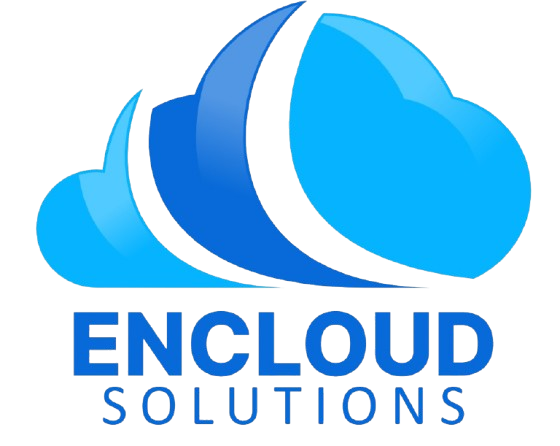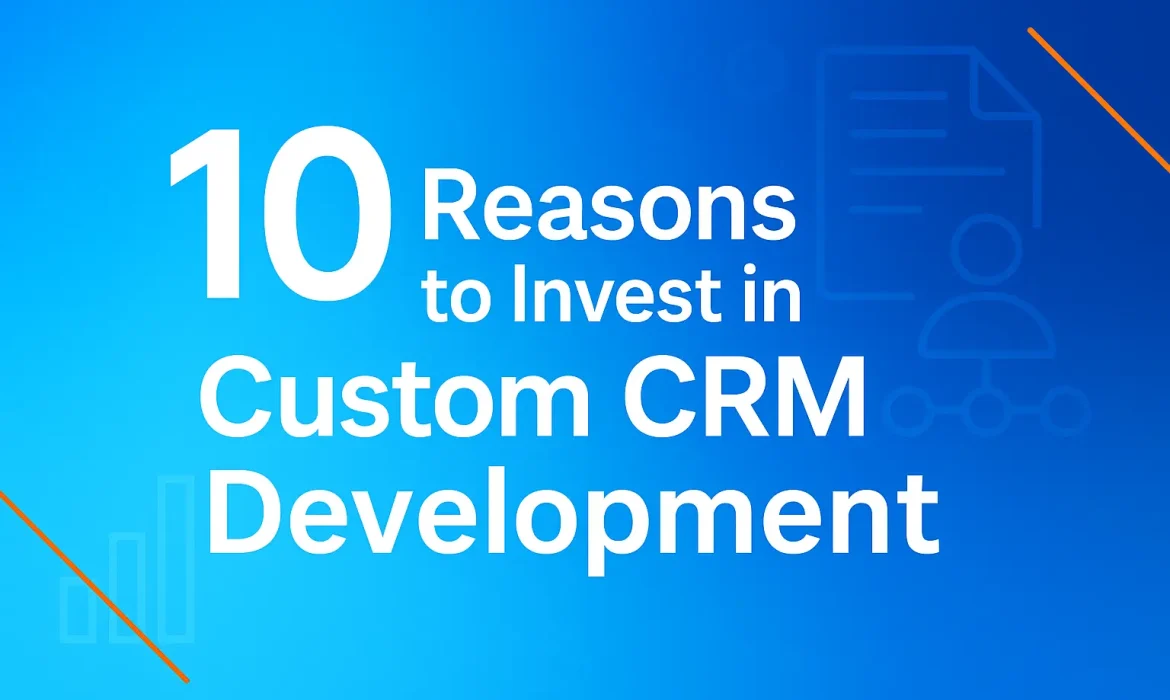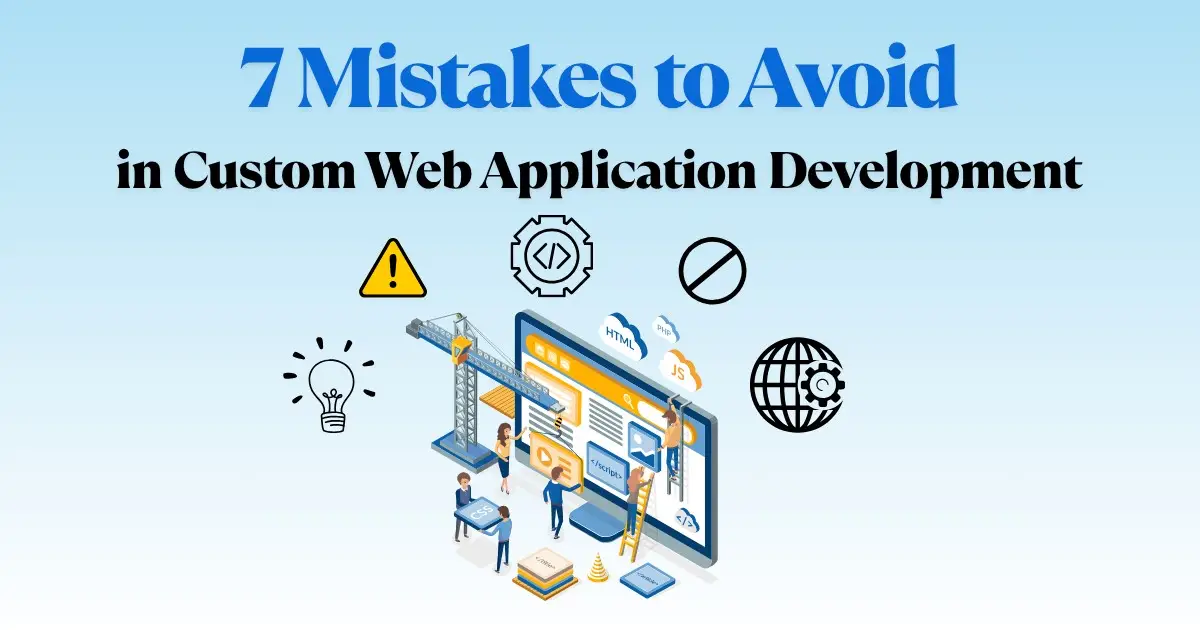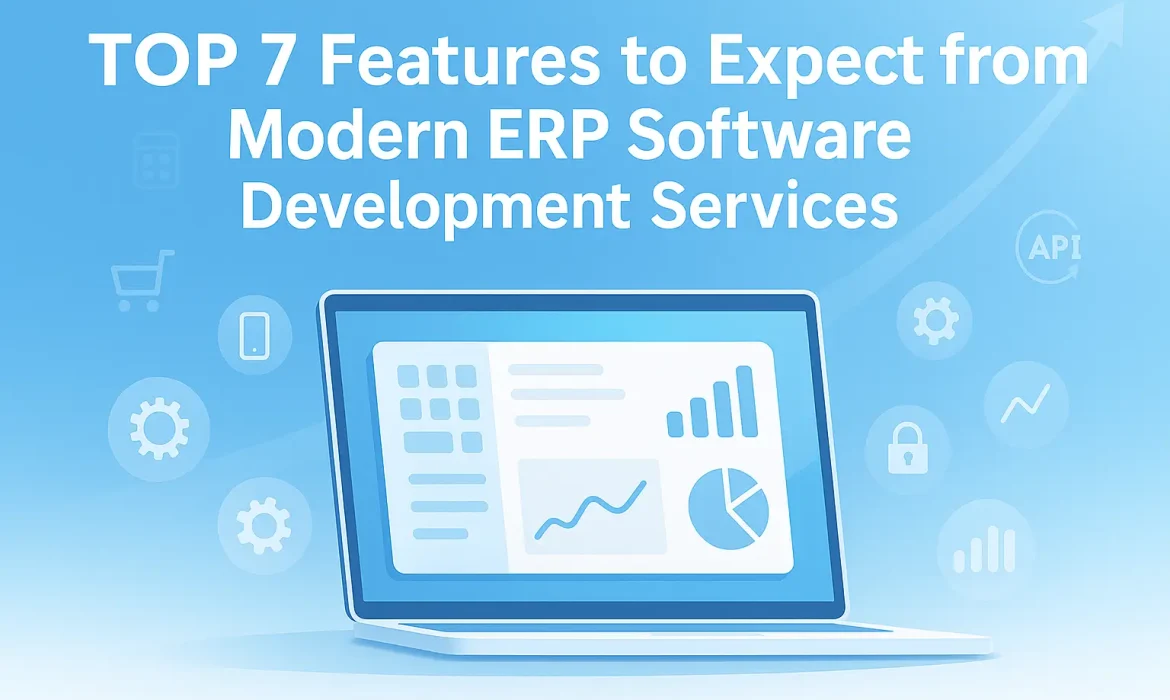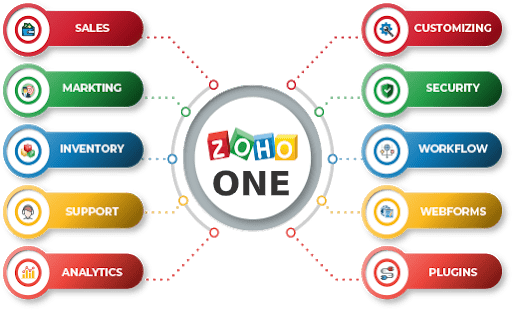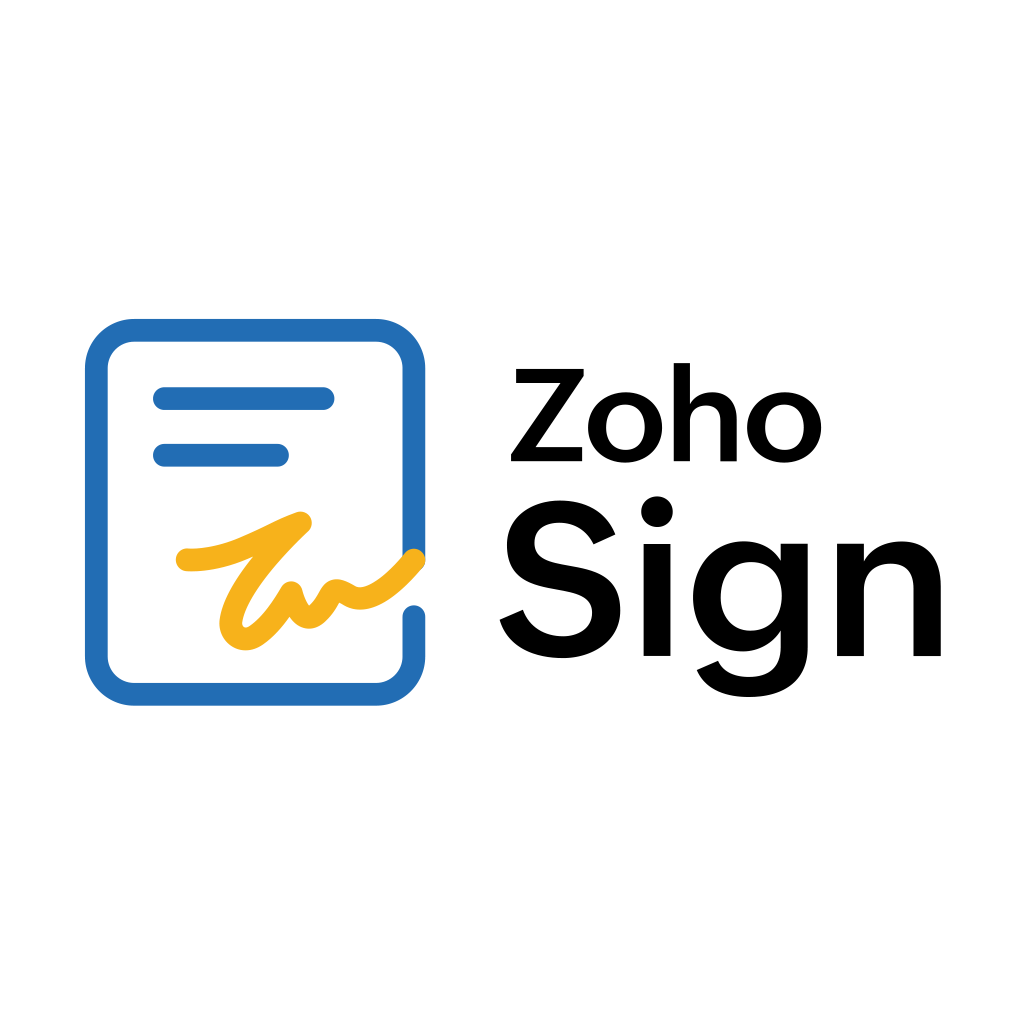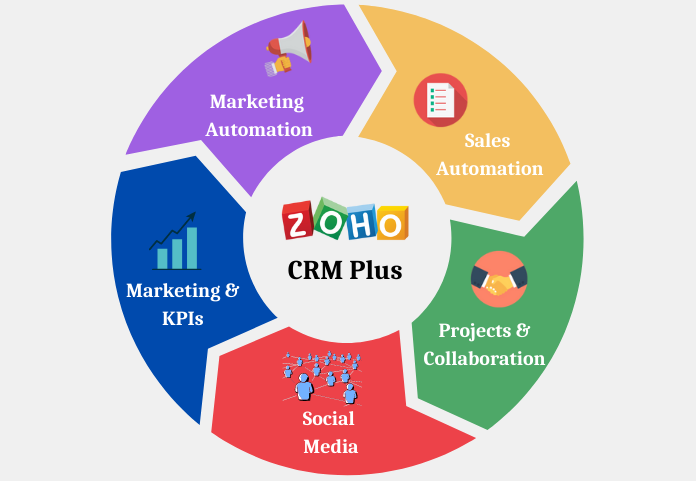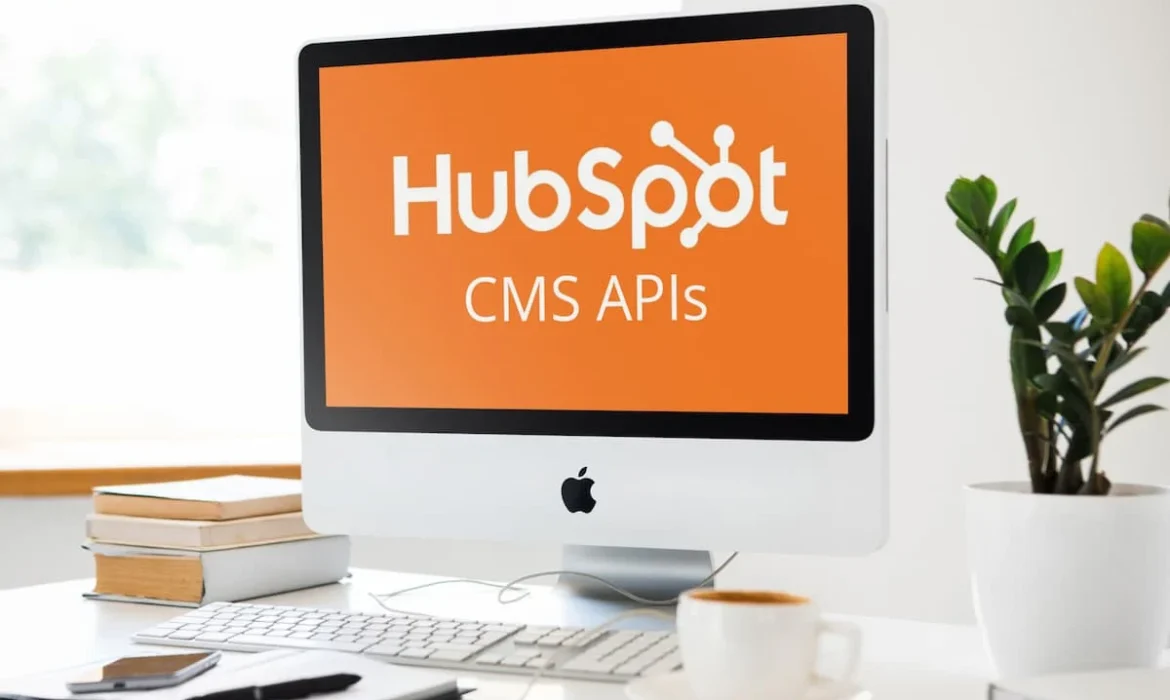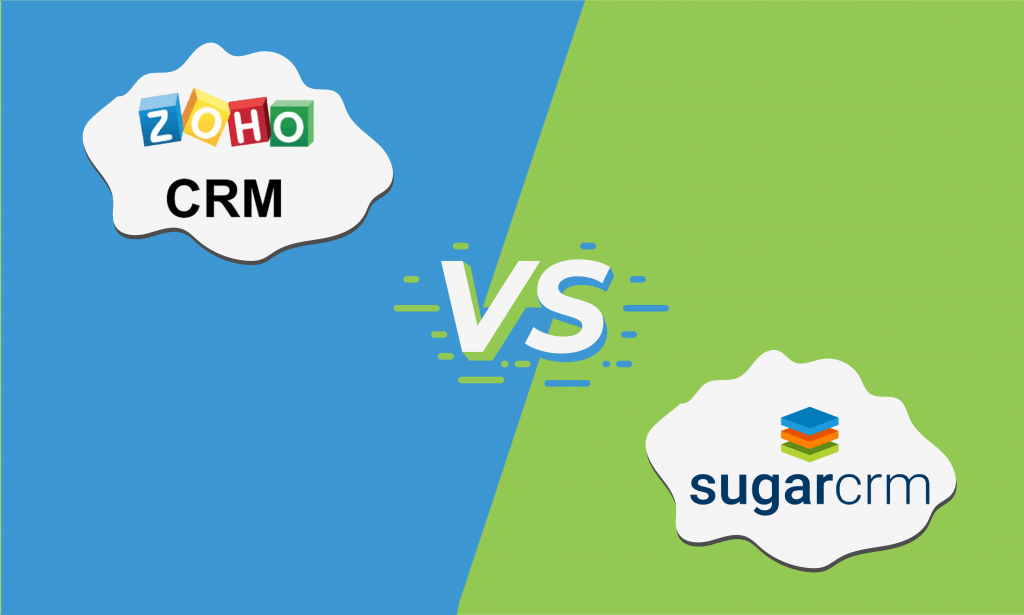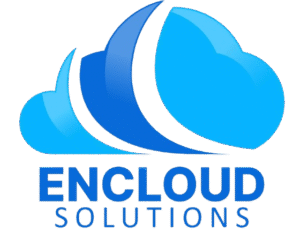10 Reasons to Invest in Custom CRM Development for Long-Term Business Growth
The global CRM software market is booming – Fortune Business Insights projects it will surge from $101.4 billion in 2024 to $262.7 billion by 2032. For SaaS companies specializing in ERP and CRM, this represents a massive opportunity to leverage customer data and streamline operations. However, many businesses find off-the-shelf CRMs too generic to support their unique workflows. Investing in custom CRM development lets you tailor the system precisely to your processes, ensuring maximum efficiency and adoption.
Custom CRM solutions allow organizations to add only the features they need and eliminate unnecessary complexity. In fact, Gartner data shows that companies investing in tailored software can expect an average return of about $8.71 for every dollar spent, thanks to significant productivity gains. By partnering with an experienced custom CRM development company like Encloud Solutions, businesses gain a competitive edge with integrated, scalable systems built around their strategy. Below are ten compelling reasons why a custom CRM is a strategic investment for long-term growth.
→ Ready to explore your CRM options? Submit the form to talk with our development team.
Also Read: Best Real Estate ERP Software

1. Tailored to Unique Business Processes
Every organization has distinctive workflows, and a custom CRM can be molded to fit them exactly. Unlike generic software that forces one-size-fits-all features, a tailor-made CRM lets you add only the functionality your business truly needs. This means no paying for unused modules or cluttering the interface with irrelevant fields. By aligning the platform precisely to your sales cycles, support processes, and reporting requirements, you reduce complexity and accelerate user adoption. Gartner analysts note that tailored systems minimize process redundancies and can boost team productivity by about 20–30%. In short, a tailored solution ensures the technology adapts to you – streamlining work and cutting waste throughout the organization.
2. Boosts Productivity and Streamlines Operations
Custom CRMs automate routine tasks and unify data across teams. For example, data entry, lead routing, and follow-up reminders can be handled automatically according to your rules, freeing staff for higher-value work. Instead of manually exporting leads or chasing down updates, everything from customer records to invoices flows through one system, ensuring accuracy and speed. This automation reduces errors and silos. It also allows instant reporting and faster decision-making – sales reps respond to hot leads immediately, and managers get real-time visibility. In practice, companies using custom CRMs report significantly faster lead response times and leaner pipelines. According to industry analysis, tailoring a CRM can improve team productivity by 20–30%.
- Automated processes: Repetitive tasks (lead entry, scheduling, notifications) are handled by the system.
- Unified data: All customer information lives in one place, eliminating errors and manual syncing.
These efficiencies translate directly into growth. Faster workflows allow teams to serve more customers with the same resources, boosting efficiency and revenue.
3. Enhanced Customer Experience and Retention
A custom CRM provides a 360° view of each customer and enables personalized engagement. By tracking all interactions, preferences, and purchase history in one place, staff can deliver timely, relevant service. Sales reps can see past purchases to tailor pitches; support teams have context for every issue. Such personalization dramatically improves satisfaction and loyalty. In fact, research shows that 70% of companies report higher customer retention after adopting tailored CRM solutions. Even a small increase in retention can pay off: one study finds that improving retention even slightly can boost profits by up to 95%. In short, a CRM built around customers helps you exceed expectations at every touchpoint, turning better service into repeat business and referrals.
4. Seamless Integration with Existing Systems
A custom CRM can be designed to seamlessly connect with your entire tech stack, eliminating data silos. Whether it’s your ERP, accounting system, e-commerce platform, or marketing automation tools, a custom CRM can integrate all of them. Once configured, data flows automatically between systems. For example, when the CRM pulls in billing information from your ERP in real time, sales teams immediately see a customer’s financial status. According to analysts, streamlined integrations can reduce the need for separate training programs by up to 30% – employees only learn one unified interface instead of juggling multiple apps. Ultimately, a custom CRM becomes the single source of truth across departments, enabling transparent reporting and collaboration that would be impossible with fragmented systems.
5. Scalability for Future Growth
Custom CRMs are built to scale. As your customer base and data grow, the system can grow with you – adding users, records, and new features without a complete overhaul. Unlike off-the-shelf solutions with hard limits, a custom CRM’s architecture can evolve alongside your business. Developers can program new modules, automate extra processes, or handle spikes in traffic as needed. This future-ready design minimizes disruption: industry experts note that a flexible, tailored CRM “becomes a sustainable solution, offering the flexibility to stay ahead of market trends and business challenges”. In practice, that means your CRM investment keeps delivering value year after year, rather than becoming obsolete.
Also Read: Custom Web Application Development
6. Competitive Advantage and Innovation
With a custom CRM, you can innovate faster than competitors stuck on generic software. Bespoke CRMs enable you to implement unique workflows, proprietary sales stages, or specialized data analysis that others lack. For example, you might develop a custom recommendation engine or automate a niche service process that sets you apart. This agility fuels a competitive edge. Analysts report that businesses using custom solutions not only streamline operations, but also “unlock a competitive edge, ensuring sustainable growth”. In short, a tailored CRM can become a key differentiator – helping a SaaS company attract new clients with features and insights no out-of-the-box CRM can provide.
7. Long-Term Cost Efficiency and ROI
Although custom CRM development requires an upfront investment, the long-term savings are substantial. You pay only for the modules and licenses you need, avoiding expensive recurring fees on unused features. Once built, the system consolidates tools (eliminating multiple subscriptions) and reduces manual labor, turning fixed costs into efficiency gains. In fact, companies using custom CRM report roughly 55% ROI in the first year, and they earn back an average of about $8.70 for each dollar invested.
- No ongoing subscriptions: Custom CRM integrates all necessary tools, eliminating extra license fees.
- Higher ROI: Industry studies show tailored CRM projects can deliver ~55% ROI in year one and rapid payback via cost savings.
These savings add up. Over time, eliminating redundant subscriptions, reducing training costs, and speeding up sales cycles more than offsets the initial development cost. In the end, a well-built custom CRM often costs less than maintaining multiple point solutions, making it a cost-effective choice for growing businesses.
8. Enhanced Data Security and Compliance
Enterprises often require strict data governance that off-the-shelf CRMs can’t fully guarantee. With a custom CRM, you control every aspect of data security, from encryption protocols to user access rights. You can design the system to meet industry regulations (GDPR, HIPAA, etc.) without compromise. This level of control is critical in regulated sectors. As one expert notes, with a custom system “you control how customer data is stored and accessed, ensuring compliance with regulations like GDPR and HIPAA”. In practice, this means you can lock down data, audit access, and enforce privacy rules exactly as needed – providing peace of mind for both the business and its customers.
9. Higher User Adoption and Satisfaction
When a CRM matches your team’s existing processes and terminology, employees embrace it quickly. A streamlined interface showing only relevant fields makes training easier and usage more intuitive. In fact, research shows that adoption rates soar when a system’s design aligns with how users actually work. For example, if your sales reps only see stages and data points they use daily, they’re far more likely to use the CRM consistently. This higher adoption not only ensures you get full value from the tool, but also encourages ongoing improvement – active users generate better data and ideas for refining the system. A smooth user experience thus multiplies all the other benefits.
- Intuitive UI: Only relevant fields and layouts are shown to each role, reducing clutter and learning time.
- Quick onboarding: When the CRM mirrors familiar processes, teams adopt it faster and stay engaged.
Ultimately, a user-friendly custom CRM drives satisfaction at every level – higher CRM usage, better data quality, and a more empowered team.
10. Dedicated Expertise and Ongoing Support
Finally, building a custom CRM means partnering with a specialized team rather than just buying software. A seasoned CRM development company brings deep domain expertise and proven methodologies to your project. They handle everything from business analysis and development to training and maintenance. For example, Encloud Solutions is a leading custom CRM development company whose expert team delivers tailored CRM and ERP solutions that optimize operations and drive growth. Working with such a provider ensures your CRM is built following best practices, and that you have support for future enhancements. In short, a trusted development partner helps you avoid common pitfalls and keeps your CRM aligned with evolving business needs.
Also Read: Zoho CRM vs Odoo CRM
Summing Up
Custom CRM development is not just a technology upgrade, it’s a strategic investment in scalable growth. Tailoring the CRM to your workflows automates core processes, unlocks data insights, and creates better customer experiences. The result is higher sales productivity, stronger retention, and a clear competitive advantage. SaaS decision-makers should view custom CRM as a foundation for their long-term roadmap. By choosing a proven partner like Encloud Solutions, businesses gain a purpose-built CRM platform designed for their unique needs. In the end, a custom CRM system becomes a key asset that grows with the company – empowering teams, delighting customers, and driving sustainable expansion.
Frequently Asked Questions
What is custom CRM development?
Custom CRM development is the process of building a customer relationship management system specifically for a company’s needs. Unlike off-the-shelf solutions, a custom CRM lets you tailor every feature to your workflows – fields, reports, automation rules, and user roles are all designed around your business processes. In essence, it means designing and coding a CRM solution that fits your exact requirements, rather than adapting your work to prebuilt software.
What do custom CRM development services include?
These services cover the full project lifecycle. A CRM development company will analyze your business requirements, design the system architecture, build and test the CRM software, migrate existing data, and train your team. Because it’s bespoke, the service often includes setting up integrations with your ERP and other tools, adding custom modules (sales, marketing, support, etc.), and providing ongoing maintenance. In short, custom CRM development services deliver a complete, customized CRM system and handle all the technical details so you get exactly what you need.
Why choose custom CRM development over an off-the-shelf CRM?
Off-the-shelf CRM products can be quick to start with, but they often force you to adapt your processes to the software. By contrast, custom CRM development is built around your existing workflows, saving time and money in the long run. You don’t pay for unnecessary features and you can integrate exactly the tools you use. Most importantly, a custom solution can evolve with your business. This means fewer bottlenecks and better alignment from day one, leading to faster adoption and higher ROI.
How do I choose the right custom CRM development company?
Look for a provider with deep CRM and ERP experience, a track record of similar projects, and strong post-launch support. Check their case studies and client reviews. For example, Encloud Solutions is a top custom CRM development company whose expert team specializes in tailored CRM and ERP implementations. A good partner will understand your industry, communicate clearly, and offer a full range of services (from consulting to support). The right team will guide you through the process and ensure your investment in a custom CRM pays off with long-term value.
Custom Web Application Development: 7 Things Most Businesses Get Wrong
Custom web applications are the need of modern businesses. Without them, businesses risk sinking into the bottomless pit of market saturation, where generic solutions fail to keep up with evolving demands. If your business is ready to stand out with a tailored digital solution, contact us today through the form below.
After all, digital platforms drive everything now: operations, customer engagement, and growth. Ready-made tools might work for a while, but they rarely scale or adapt well to your specific needs. That’s why custom web application development is taking over. Get in touch with our experts to learn how a custom web app can streamline your operations.
It’s flexible, scalable, and tailored to your business, but only when it’s done right.
Unfortunately, many companies take missteps that cost them time, money, and trust. Let’s begin by understanding what custom web-based application development actually means, and then explore the common mistakes businesses must avoid. Want to avoid these mistakes in your next project? Reach out through our contact form to speak with our development team.
Also Read: 10 Reasons to Invest in Custom CRM Development for Long-Term Business Growth
What is Custom Web-Based Application Development?
Custom web application development refers to designing and building web apps specifically tailored to meet the unique needs of a business. Unlike ready-made software, these applications are purpose-built, enabling greater control over features, user interface, integrations, and performance. If you’re exploring custom web app solutions, contact us to discuss your project goals.
These applications are accessed via web browsers and can serve both customer-facing functions (like online portals) and internal operations (like CRM systems or inventory tools). They are designed to scale with the business, ensuring they evolve in alignment with changing objectives.
Who is Responsible for Providing Custom Web Application Development Services?
These are specialized firms with structured teams that offer end-to-end services. Each project is typically led by:
Project Managers
Project Managers oversee timelines, budgets, and communication between all stakeholders. They ensure the app is delivered on schedule and aligned with business goals. Our experienced project managers can guide your web app project from idea to completion, fill out the contact form to get started.
Developers
Developers are responsible for the actual construction of the application. In a well-structured team, this typically includes both front-end and back-end developers.
- Front-end developers work on the parts of the application that users interact with directly, including layout, navigation, and responsiveness across devices.
- Back-end developers build the server-side logic, database connections, APIs, and ensure the app runs securely and smoothly behind the scenes.
Together, these custom web application developers write clean, scalable code that brings the project’s functionality to life while meeting performance and security standards. Reach out to our developers today to see how we can bring your application to life.
Designers
Designers focus on user interface (UI) and user experience (UX). Their job begins early in the process, translating business requirements into wireframes, prototypes, and visual layouts. Contact us to collaborate with our UI/UX designers and create an app your users will love.
- UI designers create attractive and brand-consistent screens that are visually appealing and intuitive.
- UX designers ensure that the user journey is seamless, meaningful, and efficient, reducing friction and improving overall usability.
Also Read: Top 7 Features to Expect from Modern ERP Software Development Services
What Are The Benefits Of Custom Web Application Development?
Full control over features, security protocols, and user access levels
Custom solutions allow businesses to decide exactly what features they need, how secure the application should be, and who can access different parts of the system.
Smooth integration with third-party tools and internal systems
Custom apps can be designed to fit into your existing tech ecosystem, syncing smoothly with CRMs, ERPs, payment gateways, or other tools.
Scalable architecture built for long-term growth
With scalability planned from the start, your application will grow with your business without needing constant overhauls.
Enhanced customer experience through personalized interfaces and functionality
Every element can be built to match your customer journey, making the experience more intuitive, relevant, and satisfying.
Increased efficiency by automating unique business processes
Custom apps eliminate manual work by automating workflows, saving time, and reducing errors across departments.
Ownership of the application and its codebase
You gain full ownership of the application, meaning no reliance on third-party platforms or licensing limitations.
Higher security standards tailored to business needs
Security features can be customized to meet industry-specific standards, ensuring compliance and protection against threats.
Continuous support and feature enhancement based on evolving demands
You can continue refining the app after launch, adding features or improvements as your needs and user expectations evolve.
7 Common Mistakes in Custom Web Application Development
Even with the best intentions, companies often make preventable errors. Here are seven critical missteps that can derail a project.
Mistake #1: Skipping the Discovery Phase
Jumping straight into coding without understanding business goals, workflows, and user expectations is a recipe for failure. The discovery phase helps identify the application’s purpose, end-users, and must-have features. Skipping this step leads to scope creep, misaligned features, and wasted budget.
Mistake #2: Underestimating the Budget (and Overpromising Internally)
Creating a flexible, scalable system tailored to specific needs isn’t very economical. Many underestimate the cost, then try to cut corners or squeeze developers under pressure. Overpromising to leadership while underestimating the scope creates tension and derails timelines. Always allocate room for change requests, testing, and unforeseen developments.
Mistake #3: Choosing the Wrong Tech Stack or Developer Team
Technology decisions made without foresight often backfire. Businesses that don’t consult custom web application development consultants may pick frameworks that aren’t future-proof or fail to hire developers with relevant experience. Choosing the wrong stack results in poor performance, a lack of flexibility, or constant refactoring.
Mistake #4: Ignoring Scalability from Day One
What works for ten users may fail miserably at a hundred. Many businesses focus only on present needs without building an architecture that can scale. Scalable custom web applications development ensures the app continues to function smoothly as users, data, and transactions grow.
Mistake #5: Poor User Experience (UX) Prioritization
A powerful backend means little if users can’t navigate or complete tasks easily. Businesses often overlook UI/UX planning, resulting in apps that confuse or frustrate end-users. Working with experienced custom web application developers ensures the interface is intuitive, accessible, and efficient.
Mistake #6: Weak Project Management & Communication Gaps
Even the best developers can’t perform well under unclear instructions or inconsistent feedback. Poor coordination between stakeholders, developers, and consultants leads to delays, rework, and frustration. Effective communication is critical throughout custom web application development services.
Mistake #7: No Plan for Post-Launch Maintenance & Support
The job doesn’t end at deployment. Many businesses have no plan for updates, bug fixes, or server issues. Continuous maintenance is essential to keep the application secure, optimized, and functional. Reliable custom web application development company partners offer long-term support packages to handle this.
Also Read: Zoho CRM vs Odoo CRM
Conclusion
Custom web application development has the potential to transform businesses, offering flexibility, control, and growth potential. But success depends on how well it’s planned, managed, and executed. If you’re planning a web app project, contact our team today for a free consultation.
The key lies in investing time during the planning phase, working with experienced custom web application development consultants, and maintaining strong collaboration from day one. Let’s discuss how Encloud Solutions can turn your idea into a scalable, high-performing web app, fill out the contact form now.
At Encloud Solutions, we specialize in providing reliable custom web application development services tailored to your business’s unique challenges. Reach out today to see how our team can build a solution designed specifically for you.
Our team of skilled professionals, strategic consultants, and experienced developers works closely with you to build scalable, intuitive, and secure custom web application development solutions. Ready to get started? Fill out the contact form and let’s bring your vision to life.
Top 7 Features to Expect from Modern ERP Software Development Services
What would happen if your house didn’t have a closet?
Clothes would be scattered everywhere, resulting in absolute chaos. That’s exactly what your business looks like without a proper ERP system.
Enterprise Resource Planning (ERP) is the digital equivalent of that closet, organizing, and giving everything a place.
But today’s ERP is smarter, faster, and deeply customizable. It helps you track operations, automate workflows, and make data-driven decisions in real time. That’s the reason more businesses now turn to custom ERP software development because no two businesses run the same.
This blog breaks down the must-have features of modern ERP systems and why working with the right ERP software development company makes all the difference.
Also Read: Zoho CRM vs Odoo CRM
Why Businesses Are Turning to Custom ERP Software Development
- Ready-made ERPs lack flexibility and adaptability
- Companies want to align ERP with their unique processes
- Businesses need faster visibility and rapid decision-making
- Custom ERPs scale better with company growth
- Legacy systems are expensive to maintain and upgrade
- Integration with third-party tools is a growing requirement
- Mobile and cloud capabilities are now essential
Features to Expect from Modern ERP Software Development Services
1. Modular Architecture for Scalable Growth
Modern ERP systems don’t need to be built all at once. With a modular architecture, businesses can start with what they need, finance, inventory, or procurement, and add more as they grow. This makes it easier to phase out legacy tools without disrupting daily operations.
A modular ERP keeps your system lean and focused, avoiding bloated features your team will never use, a common issue cited by 42% of companies when dealing with ready-made solutions, making a strong case for custom development.
Why this feature matters:
- Reduces upfront cost while maximizing flexibility
- Minimizes training time with fewer initial modules
- Adapts to changing business priorities over time
2. Real-Time Data Dashboards and Reporting
When managers base decisions on outdated data, the impact ripples through every level of the business. With real-time ERP reporting boosting decision-making by 47%, it has become a baseline requirement for modern businesses.
Real-time dashboards are now a baseline requirement. With live data feeds and on-demand reports, leadership can take proactive decisions instead of reactive ones.
ERP systems built by experienced developers prioritize high-speed data handling.
Why this feature matters:
- Gives department heads visibility into performance metrics
- Reduces delays in financial or inventory reporting
- Enables data-driven decision-making at all levels
- Prevents mistakes caused by misaligned or stale data
3. Mobile Accessibility Across Devices
Today’s workforce is no more tied to a desk. Field reps, traveling executives, and remote teams all need real-time access to business systems. A modern ERP solution should be accessible on any device, with responsive interfaces built for smartphones, tablets, and laptops.
With mobile-friendly ERP software, employees can perform key tasks from anywhere checking stock levels, approving payments, or reviewing customer data.
Why this feature matters:
- Supports flexible work models and remote collaboration
- Reduces operational delays outside business hours
- Increases ERP system usage across departments
4. Smooth Integration Capabilities
ERP must connect smoothly with CRMs, HR systems, payment processors, e-commerce platforms, and reporting tools because companies with integrated systems reduce operational costs by up to 30% through streamlined data flow.
A strong ERP software development company will prioritize API-first design to ensure easy, secure integrations.
Without integration, businesses face duplication of work, inconsistent data, and reporting errors.
Why this feature matters:
- Ensures smooth, uninterrupted workflows
- Eliminates redundant data entry
- Centralizes information across departments
- Makes expansion into new tools or platforms easier
5. Advanced User Roles and Permission Controls
Every employee needs access to specific parts of your ERP, not the entire database. Role-based access control (RBAC) helps you manage this efficiently. It limits exposure of sensitive data while allowing smooth function-level access to authorized users.
Custom ERPs can implement finely-tuned role permissions beyond the basic admin vs. user split. You can control who views, edits, approves, or deletes what, down to individual fields.
Why this feature matters:
- Protects confidential and financial information
- Maintains compliance with data regulations
- Simplifies user onboarding and management
6. Automation for Smarter Workflows
Manual entries, approval emails, and task reminders burn valuable hours. A modern ERP system integrates automation to minimize human error.
Tasks like invoice matching, reorder alerts, customer communication, or churn prediction can now run on autopilot.
Custom ERP software development ensures that these automations align with your actual processes, not someone else’s templates.
Why this feature matters:
- Improves accuracy across repetitive tasks
- Reduces manual workload and approval delays
- Enables predictive insights for inventory and customer trends
- Frees up your team to focus on growth and strategy
7. Custom Reporting and Analytics
Every business has different metrics that matter. Off-the-shelf ERP reports often miss the mark or lack flexibility. With custom ERP systems, you can define key performance indicators (KPIs), tailor dashboards to your workflow, and access deep, department-specific analytics.
Reporting is about making smarter, faster decisions. In fact, businesses that rely on customized ERP reports make strategic pivots 2x faster.
Why this feature matters:
- Provides business units with relevant, actionable data
- Enables KPI tracking specific to your goals
- Improves accountability and cross-team alignment
Also Read: 10 Reasons to Invest in Custom CRM Development for Long-Term Business Growth
Choosing the Right ERP Software Development Company

Building the right ERP system starts with choosing the right development partner. Not all developers understand the complexity of ERP environments, and even fewer can tailor solutions to your industry needs.
Look for domain expertise and industry-specific experience
Developers with experience in your sector understand your workflows, compliance needs, and business logic better.
Evaluate post-deployment support and future-proofing strategies
A great ERP partner provides ongoing updates, bug fixes, and feature enhancements to keep your system current.
Ask about their approach to custom ERP software development
You want a company that takes time to understand your pain points and designs around your business, not one that forces you into their template.
Value experience over cost-cutting shortcuts
While freelancers and general development teams may offer low prices, ERP is too critical to be risked on inexperienced teams. Invest in a skilled ERP software development company that specializes in building end-to-end systems.
Also Read: Custom Web Application Development
Conclusion
Running a business without a proper ERP system, or using an outdated one, is like working without a closet.
Today’s ERP solutions are smart, mobile-friendly, modular, and designed to scale with your growing ambitions.
But great software is only as good as the team behind it. That’s why partnering with the right experts is just as critical as the features themselves.
If you’re looking for a trusted name in ERP software development services, Encloud Solutions is here to help you build systems that work the way you work.
Fill out the contact form to schedule a free ERP consultation with our experts today.
Revolutionize Your Business with a Versatile Time Logger System
In today’s fast-paced business environment, efficient time management is crucial for success. Whether you’re in the service industry, legal sector, or any other field, tracking time accurately can significantly impact your productivity and profitability. That’s why we’re excited to introduce our new Versatile Time Logger System, designed to streamline time tracking across various business categories and integrate seamlessly with popular CRMs like Zoho CRM, Suite CRM, and Sugar CRM, or function as a standalone application.
Why You Need a Versatile Time Logger
- Enhanced Productivity: By automating time tracking, your team can focus more on their core tasks rather than manual logging.
- Accurate Billing: Ensure precise billing with customizable rates and detailed time logs.
- Seamless Integration: Our system integrates effortlessly with your existing CRM and project management tools, providing a unified platform for all your time tracking needs.
- Flexibility: Whether you’re a small business or a large enterprise, our time logger adapts to your specific requirements.
Key Features
- User-Friendly Interface: Intuitive design for easy navigation and quick time entry.
- Custom Rate Management: Override default rates with custom rates for specific projects or users.
- Project and Case Management: Attach time logs to legal cases or projects with ease, using advanced search and auto-complete features.
- Comprehensive Reports: Generate detailed reports to analyze time spent on various tasks and projects.
- Role-Based Access: Manage permissions effectively with role-based access control.
How It Works
- Time Entry: Quickly log time with various formats and predefined slots.
- Project/Case Selection: Attach time logs to specific projects or legal cases using an intuitive interface.
- Custom Rates: Apply custom rates as needed, overriding default rates pulled from your CRM.
- Integration: Sync time logs with your CRM and project management tools automatically.
- Reporting: Generate and analyze reports to gain insights into time utilization and billing.
Get Started Today
Transform the way you manage time in your business. Our Versatile Time Logger System is designed to meet the diverse needs of various industries, providing a robust solution for accurate time tracking and billing.
Visit our website to learn more and schedule a demo. Let’s take your time management to the next level!
Supercharge Your Lead Management with the Quick Create Lead Module
In the ever-evolving world of customer engagement and lead management, staying ahead of the curve is crucial. To streamline workflows and enhance productivity, I have crafted a highly efficient custom React/JavaScript widget, the Quick Create Lead Module, designed to seamlessly integrate with Zoho CRM. This innovative tool simplifies capturing and managing leads while ensuring smooth coordination between contacts, accounts, and ticketing systems. Below, I share the key features and benefits of this widget that revolutionize lead generation and customer service.
Key Features
1. Contact Information Capture and Lead Creation The cornerstone of effective lead management is capturing accurate contact information. This widget takes it a step further by:
- Automatically linking stored contact details to newly created leads via a lookup, ensuring robust data association.
- Identifying and attaching associated accounts to leads, providing a 360-degree view of customer interactions.
- Creating leads simultaneously, reducing repetitive tasks and saving time.
2. Ticket Creation in Zoho Desk Customer service plays a vital role in fostering trust and loyalty. The second section of this widget focuses on ticket creation, enabling agents to:
- Seamlessly create tickets in Zoho Desk, ensuring incoming queries are documented and actionable.
- Select transfer call options directly within the widget for efficient ticket assignment and resolution.
3. Spam SMS Management An efficient lead management process involves eliminating noise and focusing on genuine opportunities. This widget incorporates:
- Advanced spam SMS filtering to identify and organize irrelevant messages.
- Streamlined management of communication, preventing clutter and enhancing data quality.
Benefits
- Simplifies and Accelerates Lead Creation: By automating key steps, this widget ensures faster and more efficient lead management, allowing teams to focus on nurturing relationships.
- Organized Handling of Customer Queries: With integrated ticketing workflows, agents can address customer issues promptly and effectively.
- Enhanced Data Quality: Spam filtering ensures a cleaner, more reliable database, driving better decision-making and targeted outreach.
Why Choose a Custom Widget?
With over 8 years of experience in development and coding, I specialize in creating tailored solutions that align perfectly with business needs. The Quick Create Lead module exemplifies the power of custom React/JavaScript builds to solve real-world challenges.
Whether you’re looking to streamline your workflows or improve customer engagement, this widget offers a practical, scalable solution.
Ready to transform your lead management process? Connect with me to learn more about implementing the Quick Create Lead module for your team. Together, let’s pave the way for seamless lead generation and exceptional customer service.
Follow me for more updates on innovative React/JS widgets and how they can drive efficiency in your organization. #ZohoCRM #ReactJS #LeadManagement #CustomWidgets
🚀 Empowering Solar Workflows with Zoho CRM: EnCloud Solutions Edition 🚀
Embark on a transformative journey with us as we reveal a groundbreaking chapter in our quest to streamline solar business operations using Zoho CRM. Here’s a glimpse into the solar-powered strides we’ve made:
🌅 Illuminating Script Logic: Witness the power of client scripts as they dynamically respond to stage changes, triggering workflows seamlessly. Our client-side validations infuse a burst of energy into our solar business interface.
🔓 Unlocking the Power of Dealphase: We’ve unlocked the Dealphase section, ensuring that approval request buttons function effortlessly. Experience heightened accessibility, facilitating a smoother solar project approval process.
⚙️ Empowering Rule Criteria: Rule Criteria becomes our solar canvas, where we configure approval buttons, set up tailored email notifications for every solar project step, and ensure harmony between technology and the intricate demands of the solar industry.
💡 Innovations in Solar Workflow Technik: Our innovations extend to solar workflow stages, tailored specifically for unique solar business processes. Picture streamlined solar processes, staged approvals, and meticulous task creations – where technology meets the dynamic demands of the solar sector.
📧 Enhanced Solar Notifications: Our email notifications receive a solar-inspired upgrade, meticulously templated for both solar project approval and rejection scenarios. Communication in the solar realm just got clearer.
🛠️ Custom Validation Brilliance for Solar Efficiency: Adding a touch of brilliance with custom field validations, ensuring that essential solar fields shine bright. It’s not just about making it work; it’s about making solar processes work elegantly.
🌐 Strategic Assignments for Solar Prowess: Tasks are assigned strategically, ensuring they land where the solar rays of expertise are needed. Deluge logic takes center stage, orchestrating a solar symphony of approvals.
🚀 Continuous Solar Learning: Our solar journey doesn’t end here. With each solar milestone, we’re learning, adapting, and gearing up for future solar enhancements. The road to solar innovation is continuous, and we’re excited about the possibilities ahead.
🙏 Gratitude for Solar Dedication: A heartfelt thank you to our solar-dedicated team whose commitment and skills have brought this solar vision to life. We’re not just streamlining solar processes; we’re crafting a solar experience.
🌞 Next Steps in Solar Innovation: Stay tuned for more updates as we delve deeper into Zoho CRM’s solar capabilities, unlocking new solar possibilities, and transforming solar challenges into opportunities.
Let’s connect, innovate, and pave the way for a brilliantly efficient solar future together! ☀️
#EnCloudSolutions #SolarBusinessAutomation #ZohoCRM #SolarInnovation #TechInSolar
A Seamless Integration Guide: Zoho Sign with Zoho CRM
Introduction
In the digital age, optimizing your business processes can be the key to success. Integrating Zoho Sign with Zoho CRM can revolutionize the way you manage documents and customer relationships. In this SEO-friendly guide, we’ll walk you through the step-by-step process of integrating these two powerful Zoho applications to streamline your workflow.
Step 1: Understand the Benefits
Before diving into the integration process, it’s crucial to understand the benefits. Seamlessly connecting Zoho Sign with Zoho CRM can enhance document management, improve efficiency, and elevate customer experiences. It’s a strategic move that positions your business for success in a fast-paced market.
Step 2: Create Zoho Sign and Zoho CRM Accounts
To get started, ensure you have active Zoho Sign and Zoho CRM accounts. If not, sign up for these services and have your login credentials ready for the integration process.
Step 3: Access Zoho CRM
Log in to your Zoho CRM account using your credentials. This will serve as the starting point for setting up the integration.
Step 4: Navigate to Setup
Once in your Zoho CRM account, locate the “Setup” icon in the top-right corner of the screen. Click on it to access the configuration and customization settings.
Step 5: Explore the Zoho Marketplace
Within the Setup menu, scroll down and find the “Marketplace” section. Click on it to enter the Zoho Marketplace, where you can explore various integrations and extensions.
Step 6: Find Zoho Sign Integration
Use the search bar in the Zoho Marketplace to find the Zoho Sign integration. Once located, click on it to access its details and setup options.
Step 7: Install Zoho Sign Integration
On the Zoho Sign integration page, you’ll find an “Install Now” button. Click on it to initiate the installation process.
Step 8: Authorize Zoho Sign
After clicking “Install Now,” you’ll be prompted to authorize Zoho CRM to connect with your Zoho Sign account. Follow the on-screen instructions to grant the necessary permissions.
Step 9: Configure Integration Settings
With authorization complete, configure the integration settings. This involves mapping fields between Zoho CRM and Zoho Sign to ensure smooth data transfer.
Step 10: Enable Integration Features
Activate the features you wish to use within the integration. This could include sending documents for e-signature, tracking document status, and associating signed documents with CRM records.
Step 11: Test the Integration
Before finalizing, it’s wise to conduct a test run. Send a sample document for e-signature through Zoho CRM to verify that the integration is functioning as expected.
Step 12: Finalize and Deploy
Once satisfied with the test, finalize the integration settings and deploy it. This will establish a seamless link between Zoho Sign and Zoho CRM.
Step 13: Training for Your Team
To maximize the integration’s benefits, ensure your team is well-versed in the new processes. Provide training so they can confidently navigate the integrated tools and workflows.
Conclusion
The integration of Zoho Sign with Zoho CRM offers a transformative solution for document management and customer relationship management. By following this step-by-step guide, you’ll seamlessly combine these two tools, optimizing your workflow and enhancing customer experiences. Elevate your business by embracing this digital transformation, saving time, boosting accuracy, and setting yourself apart in a competitive market.
Zoho CRM Plus and Ultimate Pricing and Comparison: Which CRM Fits Your Needs?
In the world of customer relationship management (CRM) software, Zoho offers a range of solutions to cater to different business needs.
Streamline Your Website Management with HubSpot CMS: Workflow and API Integration
In today’s digital landscape, businesses are constantly striving to enhance their online presence and improve customer experiences…
SugarCRM vs. Zoho Creator: A Comprehensive Feature Comparison
In the realm of customer relationship management (CRM) and business process automation, SugarCRM and Zoho Creator are two prominent players offering powerful solutions.
